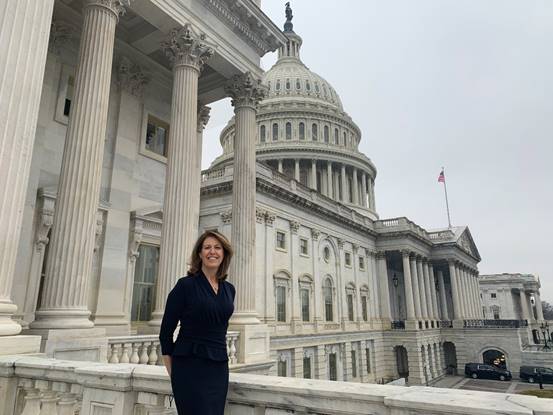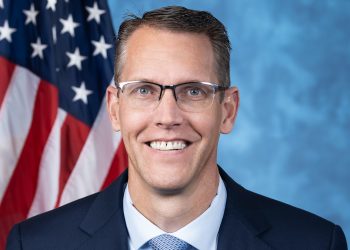DES MOINES, Iowa – U.S. Rep. Cindy Axne, D-Iowa, on Thursday voted for the Paycheck Fairness Act, H.R. 7, that passed in the U.S. House of Representatives by a 217 to 210 mostly party-line vote.
Axne’s office touted the bill with three Republican co-sponsors and recorded only one Republican vote as “bipartisan.” U.S. Rep. Brian Fitzpatrick, R-Pa., was the only Republican to vote in favor of the bill. The other two Republican co-sponsors, U.S. Reps. Chris Smith, R-N.J., and Jefferson Van Drew, R-N.J., voted against the bill.
Axne, who represents Iowa’s 3rd Congressional District, was the only member of Iowa’sIowa’s U.S. House delegation to vote for the bill. U.S. Reps. Ashley Hinson, R-IA 01, Mariannette Miller-Meeks, R-IA 02, and Randy Feenstra, R-IA 04, voted no.
“With the most recent economic turmoil disproportionately affecting working women and pushing working moms out of the workforce, it is more important than ever that we address the systemic inequities and loopholes that are preserving a gap between what women and men earn,” Axne said. “For decades, we have pledged to make equal pay for equal work a reality in our country, but our current laws are still insufficient. With this bipartisan legislation that we advanced today, we provide the tools and policies to move us closer to equal pay in the workplace.”
Her office in a press release said the bill closes “loopholes” in the Equal Pay Act of 1963. The legislation requires employers to demonstrate that any pay disparities are based on “legitimate, work-related factors.” The bill also prohibits retaliation against employees who discuss or compare their wages. The bill also limits employers’ abilities to seek the previous salaries of prospective employees. The legislation also expands damages employers could face in discrimination lawsuits and requires employees to opt-out of class-action lawsuits.
“More than five decades after the passage of the Equal Pay Act of 1963, women on average still make only 82 cents for every dollar earned by men. That gap is even wider for women of color. Compared to white men, African American women are paid 63 cents, and Latina women are paid 55 cents,” the press release said.
Critics of the wage gap argument say that a comparison of averages does not account for factors that can affect pay and is not evidence of discrimination. Instead, they say it is evidence of the difference between men’s and women’s approaches to their careers.
The Independent Women’s Forum (IWF) opposed the bill stating that while workplace discrimination still exists, the Civil Rights Act of 1963 and Title VII of the Civil Rights Act already make paycheck discrimination illegal and provide legal remedies for those who have been hurt.
If enacted, they are concerned that the legislation would have limit workplace flexibility and employment opportunities for all workers.
“Of course equally qualified women and men who perform the same job should be paid the same amount, and federal law rightly prohibits pay discrimination. The so-called Paycheck Fairness Act will not further advance this goal. Rather, it will help line the pockets of America’s trial lawyers at the expense of workers. The Paycheck Fairness Act isn’t fair, and once again we see the left trying to fool the American public with deceptively-titled legislation,” Andi Bottner, a senior adviser with Independent Women’s Forum and former Acting Director of the U.S. Department of Justice Office on Violence Against Women, said.















